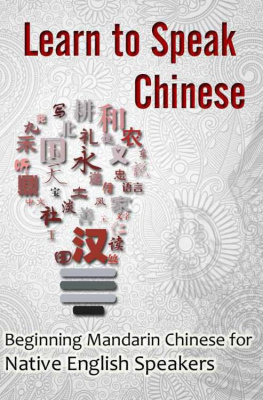Cornelius C. Kubler - Intermediate Spoken Chinese: A Practical Approach to Fluency in Spoken Mandarin
Here you can read online Cornelius C. Kubler - Intermediate Spoken Chinese: A Practical Approach to Fluency in Spoken Mandarin full text of the book (entire story) in english for free. Download pdf and epub, get meaning, cover and reviews about this ebook. year: 2013, publisher: Tuttle Publishing, genre: Detective and thriller. Description of the work, (preface) as well as reviews are available. Best literature library LitArk.com created for fans of good reading and offers a wide selection of genres:
Romance novel
Science fiction
Adventure
Detective
Science
History
Home and family
Prose
Art
Politics
Computer
Non-fiction
Religion
Business
Children
Humor
Choose a favorite category and find really read worthwhile books. Enjoy immersion in the world of imagination, feel the emotions of the characters or learn something new for yourself, make an fascinating discovery.
- Book:Intermediate Spoken Chinese: A Practical Approach to Fluency in Spoken Mandarin
- Author:
- Publisher:Tuttle Publishing
- Genre:
- Year:2013
- Rating:3 / 5
- Favourites:Add to favourites
- Your mark:
Intermediate Spoken Chinese: A Practical Approach to Fluency in Spoken Mandarin: summary, description and annotation
We offer to read an annotation, description, summary or preface (depends on what the author of the book "Intermediate Spoken Chinese: A Practical Approach to Fluency in Spoken Mandarin" wrote himself). If you haven't found the necessary information about the book — write in the comments, we will try to find it.
Part of the widely-used and highly acclaimed Kubler series, Intermediate Spoken Chinese provides separate but integrated tracks to help you learn to read, write and speak Chinese efficiently, at your own pace. Some students and teachers wish to emphasize speaking ability first, whereas others want to focus on learning to read and write Chinese at the same time. These Chinese language study books allow you the flexibility to acquire the spoken language and the written language with the method that best fits your needs.
Intermediate Spoken Chinese allows you to experience real-life situations in different Mandarin-speaking locales. (It also exposes you to the authentic range of Chinese accents; youre not limited only to learning an imaginary textbook Beijing accent as in other books.) Each of the everyday situations explored herefrom shopping at a market to playing unexpected phone tagis one youre likely to encounter as you interact with Chinese language speakers.
You can choose to use this book with its corresponding Intermediate Chinese Practice Essentials Workbook, available separately, that offers you a wide range of one-of-a-kind activities to help you practice the language skills you learn here.
Key features of Intermediate Spoken Chinese:
- Clear and detailed explanations of natural, colloquial Chinese grammar, pronunciation and usage
- Recommended strategies to help you learn to speak Chinese more efficiently
- Experience the actual speaking styles of Chinese people in various parts of mainland China as well as Taiwan, Macao, Hong Kong, Singapore, and Malaysia
- Notes on Chinese culture and society allow you to understand situational etiquette
- Discussions of challenges faced specifically by English speakers who are learning Chinese and how to overcome them
- Audio recordings by native speakers of all the vocabulary, dialogues, and other vital items
- A separate Teachers Guide and a full character transcript (Simplified and Traditional) are both available electronically
- An accompanying software program contains 56 videos shot on location which allows you to view conversations involving Chinese speakers from different parts of China
Cornelius C. Kubler: author's other books
Who wrote Intermediate Spoken Chinese: A Practical Approach to Fluency in Spoken Mandarin? Find out the surname, the name of the author of the book and a list of all author's works by series.

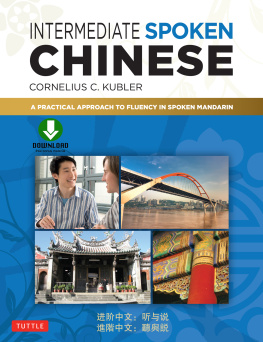
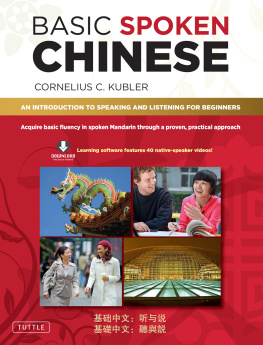
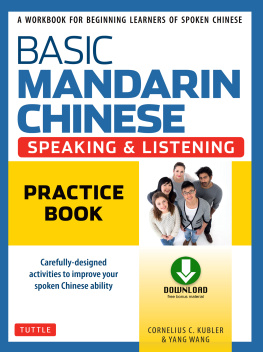

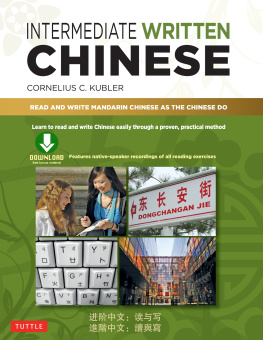
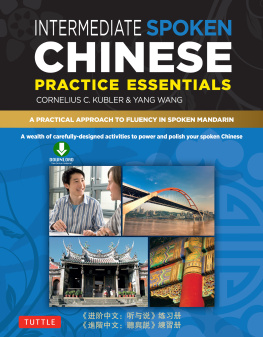
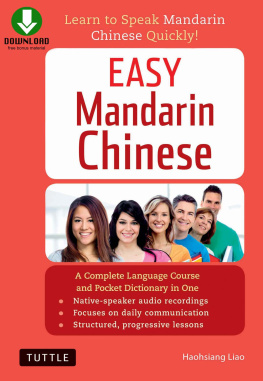
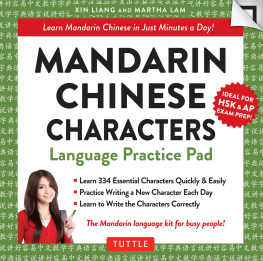
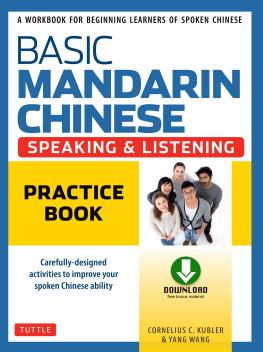
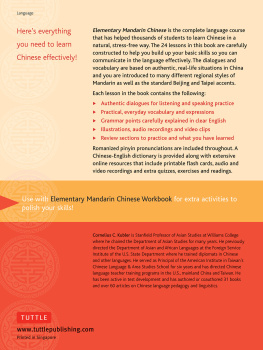
![Yi Ren - Mandarin Chinese for Beginners: Learning Conversational Chinese / Mastering Conversational Chinese [Book]](/uploads/posts/book/146887/thumbs/yi-ren-mandarin-chinese-for-beginners-learning.jpg)

